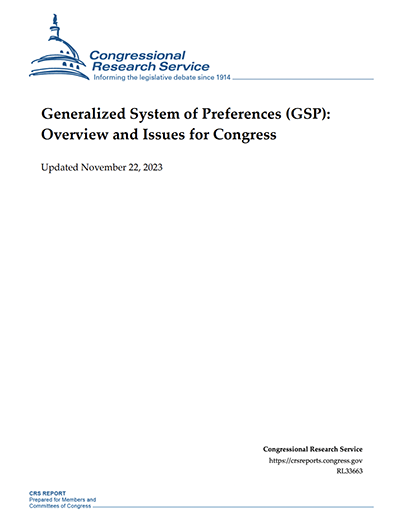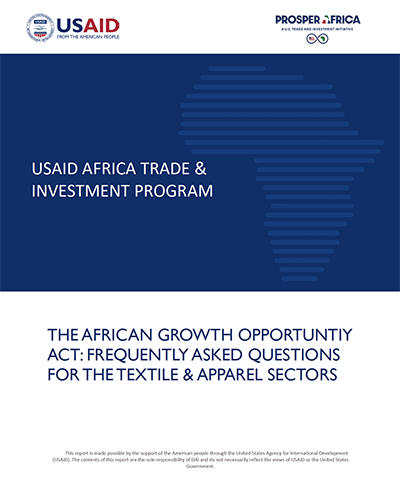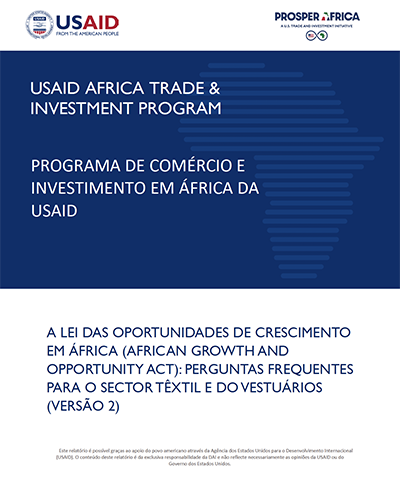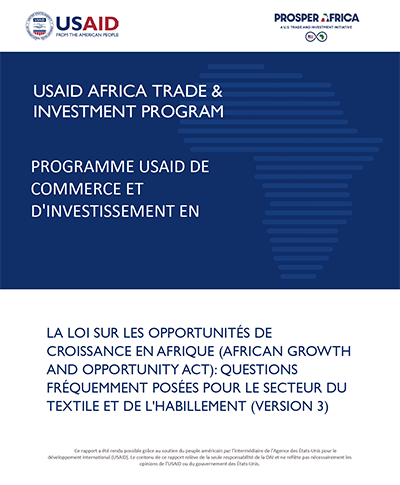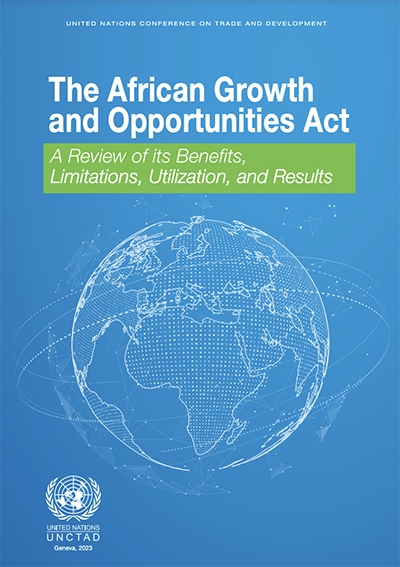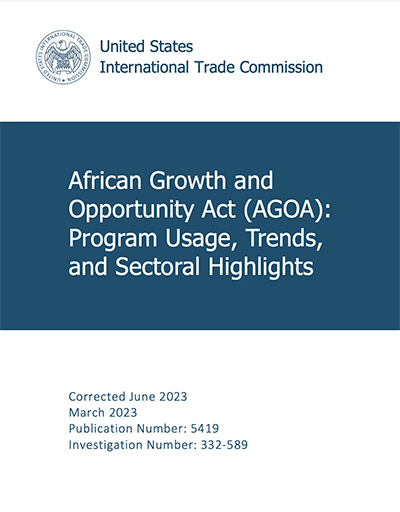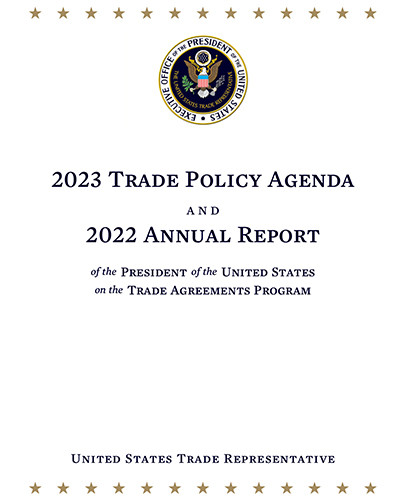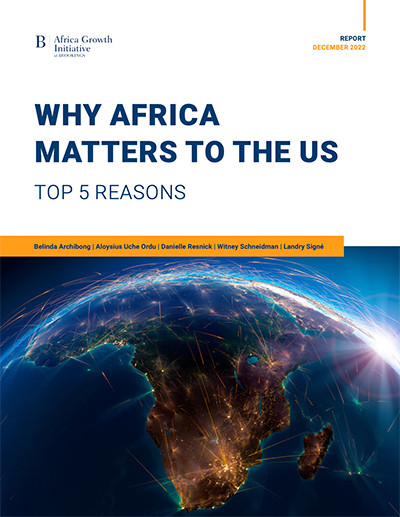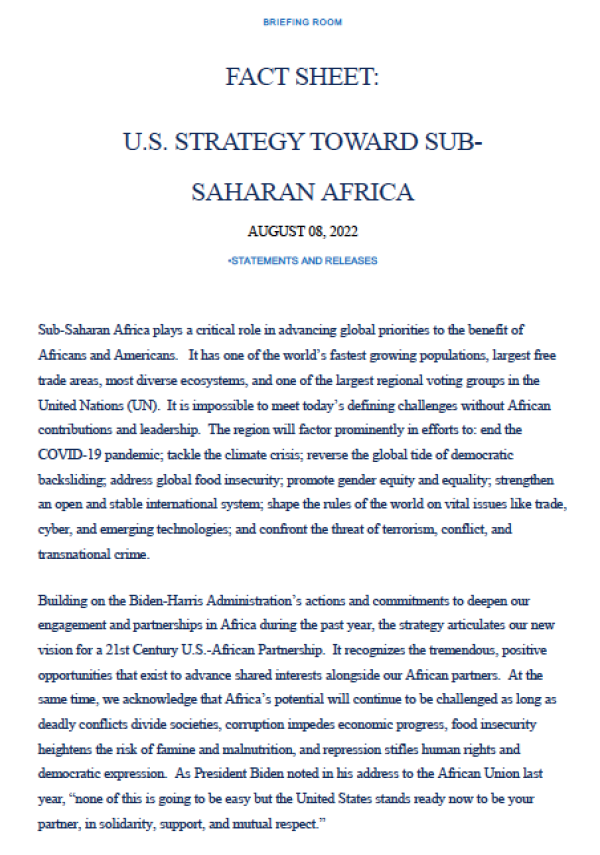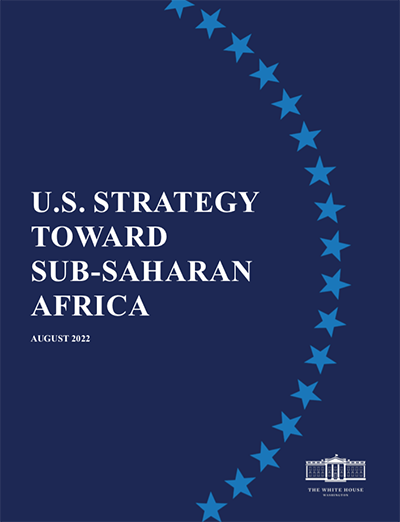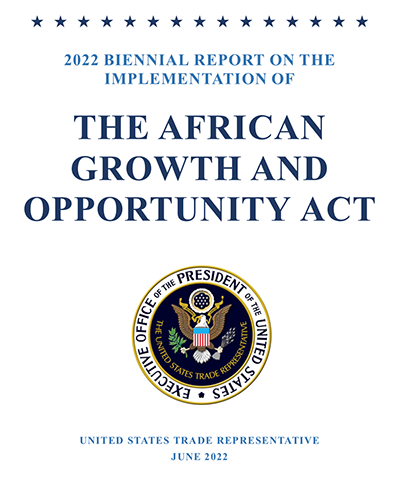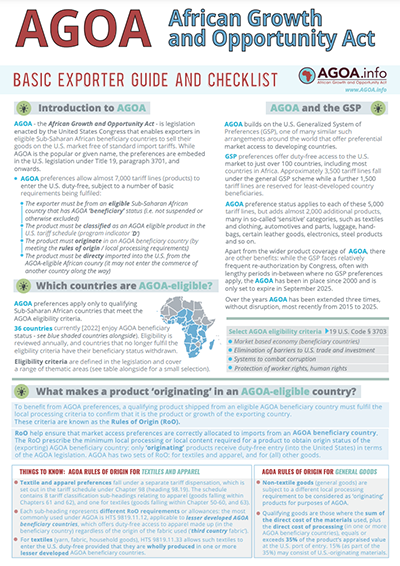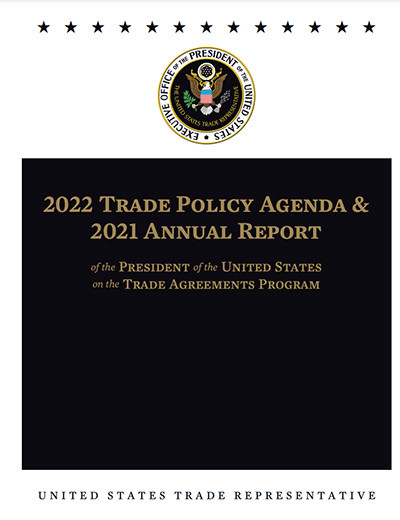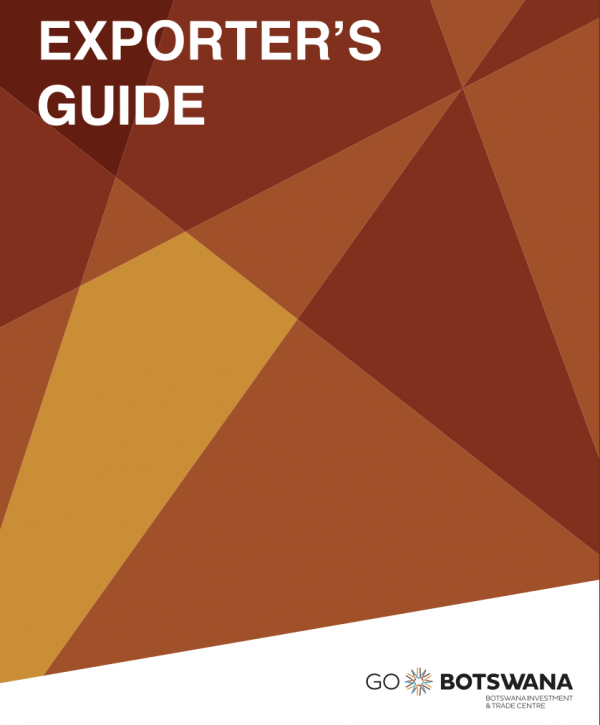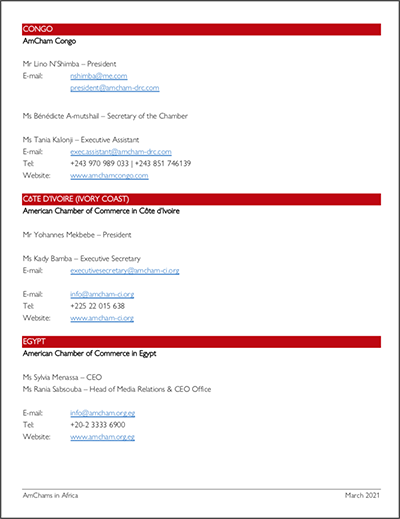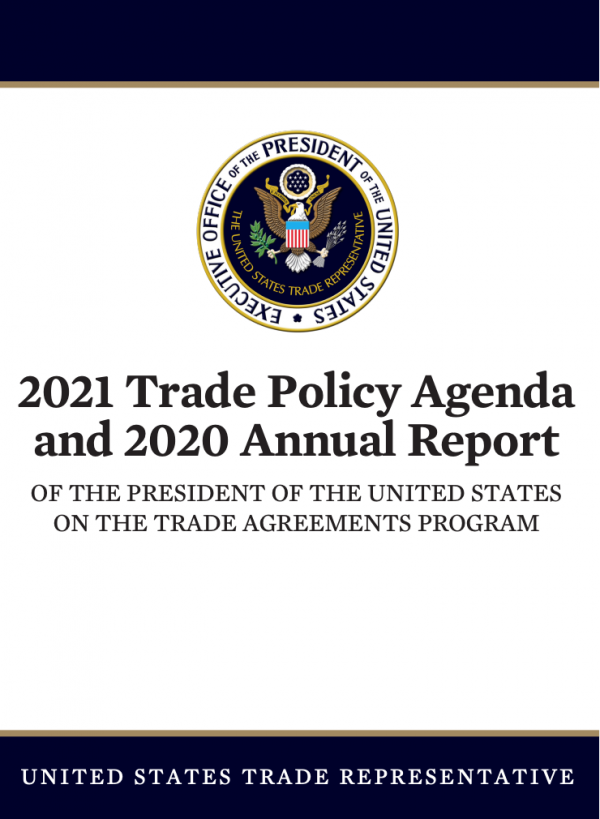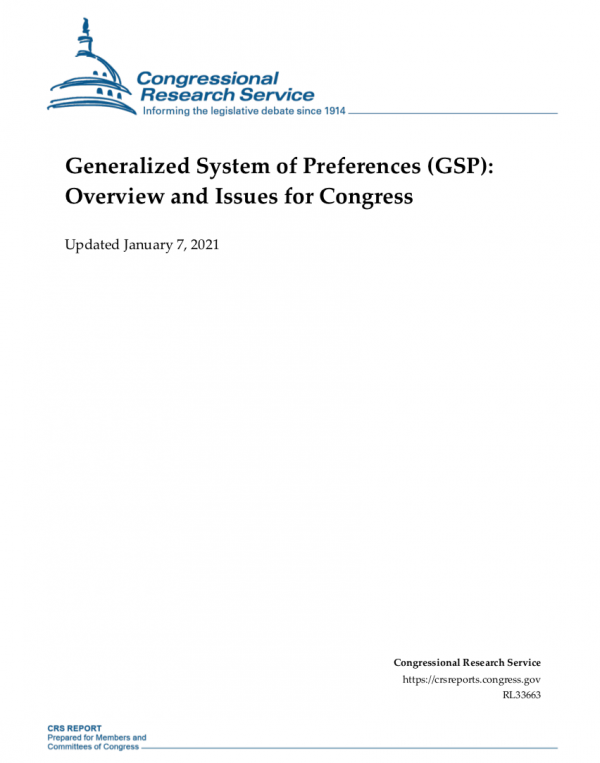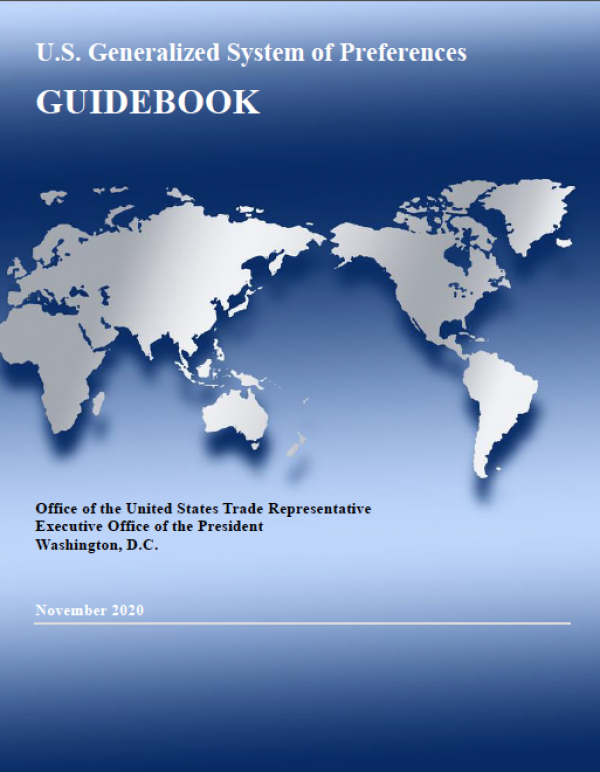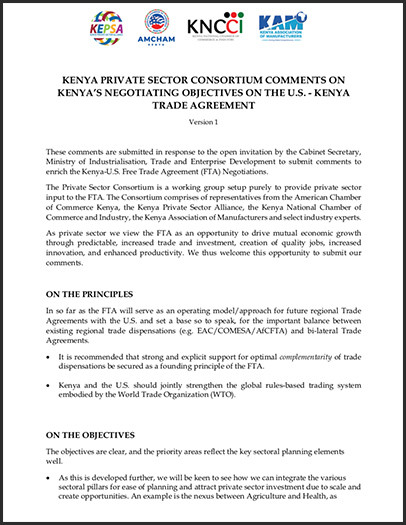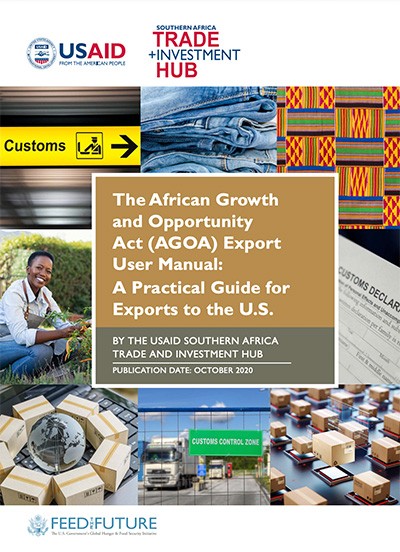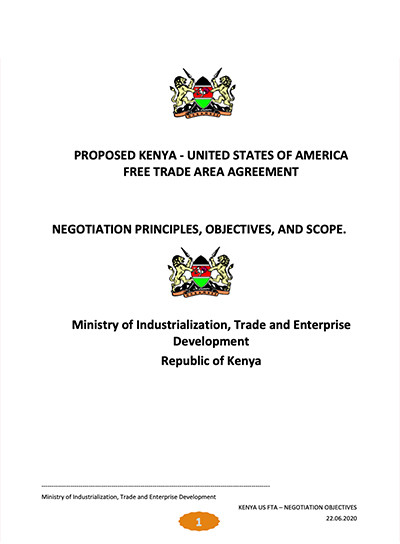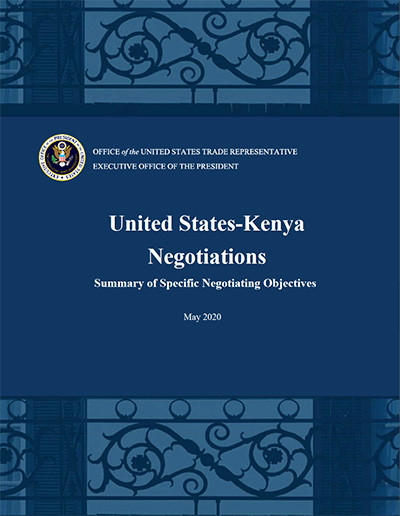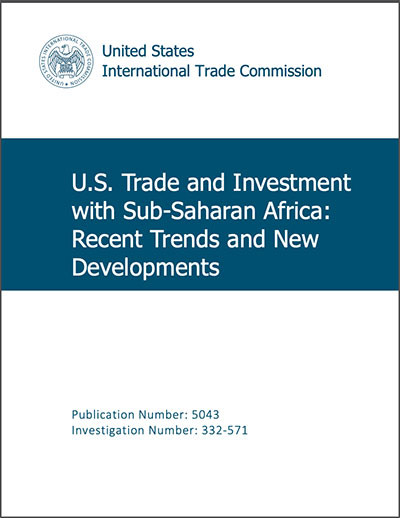General Documents
Proposal on an early AGOA renewal alongside options to enhance the legislation and broaden its future impact
Proposal on an early AGOA renewal alongside several options to enhance the legislation and broaden its future impact.
Generalized System of Preferences (GSP): Overview and issues for Congress (November 2023 update)
This report examines, first, recent legislative developments, along with a brief history, economic rationale, and legal background leading to the establishment of GSP. Second, the report describes U.S. GSP implementation. Third, the report briefly analyzes the U.S. program’s effectiveness and stakeholders’ views, and discusses possible options for Congress.
AGOA: Frequently Asked Questions for the textile and apparel sectors (English)
AGOA: Frequently Asked Questions for the textile and apparel sectors (Portuguese)
AGOA: Frequently Asked Questions for the textile and apparel sectors (French)
AGOA - A review of its benefits, limitations, utilization and results
This study on the African Growth and Opportunities Act was commissioned in 2022 by the United Nations Conference on Trade and Development. The four analytical sections that comprise this submission assess the AGOA program in progressively more specific levels. Section II addresses the overall relationship between poverty, trade preferences, and other instruments intended to promote economic development. The positive but limited impact of preferences can be seen in the utilization of the AGOA preferences, as reviewed in Section III. There differing experiences according to country and sector are assessed. The sectoral differences are examined more precisely in the next two sections, each of which address the United States International Trade Commission (USITC)’s stated intention to present case studies on cotton, apparel, certain chemicals, and cocoa. In Section IV the broader trends in United States imports of apparel, minerals, and other products from the region are reviewed. Section V turns to the question of whether AGOA preferences have helped beneficiary countries to upgrade their production and exports in hydrocarbons, cocoa, and cotton goods. Section VI concludes by providing specific considerations for the improvement of AGOA.
AGOA: Program usage, trends, and sectoral highlights (2023 Report)
[Updated report with June 2023 corrections] This report provides information on and analysis of the African Growth and Opportunity Act (AGOA) program in general and select industries in AGOA beneficiary countries. AGOA was signed into law on May 18, 2000, as part of the Trade and Development Act of 2000 and subsequently amended over the following two decades. It is currently in effect through September 30, 2025, as provided for in the AGOA Extension and Enhancement Act of 2015. AGOA is a trade preference program that grants duty-free access on certain products exported by qualifying sub-Saharan Africa (SSA) countries to the United States. A country desiring to benefit from AGOA must meet enumerated criteria before it is granted beneficiary status, and some countries have gained, lost, or re-gained this status over the life of the program. The impact of AGOA on beneficiary countries can be substantial within certain countries and sectors, especially apparel, but the broader influence on economic development and poverty reduction throughout SSA appears minimal.
2023 Trade Policy Agenda and 2022 Annual Report
The 2023 Trade Policy Agenda and 2022 Annual Report of the President of the United States on the Trade Agreements Program are submitted to the Congress pursuant to Section 163 of the Trade Act of 1974, as amended (19 U.S.C. § 2213). Chapter IV and Annex III of this document meet the requirements of Sections 122 and 124 of the Uruguay Round Agreements Act with respect to the World Trade Organization. This report includes an annex listing trade agreements entered into by the United States since 1984. This report also includes an annex on U.S. trade in 2022, for which goods trade data by country are for full year 2022 and full-year services data by country are for 2021 (latest data available).
Why Africa matters to the US - top 5 reasons
For years, U.S. engagement in Africa has emphasized poverty reduction, foreign aid, and addressing conflict and insecurity. While critically important, these priorities have not fully kept pace with dramatic changes occurring across the region, as Africa today has emerged as one of the world’s premier destinations for cutting-edge innovation and inspiring entrepreneurship. The briefing papers in this collection are meant to touch on some of the key reasons why Africa matters for the United States, as well as strategic opportunities for U.S. engagement in the region. These briefs focus on five key issues: how the U.S. can reinforce trade and investment in Africa, as well as advance shared values on issues of food security, global health, digital transformation, and infrastructure.
Factsheet: US Strategy toward Sub-Saharan Africa (2022)
Sub-Saharan Africa plays a critical role in advancing global priorities to the benefit of Africans and Americans. It has one of the world’s fastest growing populations, largest free trade areas, most diverse ecosystems, and one of the largest regional voting groups in the United Nations (UN). It is impossible to meet today’s defining challenges without African contributions and leadership. The region will factor prominently in efforts to: end the COVID-19 pandemic; tackle the climate crisis; reverse the global tide of democratic backsliding; address global food insecurity; promote gender equity and equality; strengthen an open and stable international system; shape the rules of the world on vital issues like trade, cyber, and emerging technologies; and confront the threat of terrorism, conflict, and transnational crime.
US Strategy towards Sub-Saharan Africa (2022)
Sub-Saharan Africa is critical to advancing our global priorities. It has one of the world’s fastest growing populations, largest free trade areas, most diverse ecosystems, and one of the largest regional voting groups in the United Nations (UN). It is impossible to meet this era’s defining challenges without African contributions and leadership. The region will factor prominently in efforts to: end the COVID-19 pandemic; tackle the climate crisis; reverse the global tide of democratic backsliding; address global food insecurity; strengthen an open and stable international system; shape the rules of the world on vital issues like trade, cyber, and emerging technologies; and confront the threat of terrorism, conflict, and transnational crime. This strategy reframes the region’s importance to U.S. national security interests. In November 2021, Secretary of State Antony Blinken affirmed that “Africa will shape the future— and not just the future of the African people but of the world.” Accordingly, this strategy articulates a new vision for how and with whom we engage, while identifying additional areas of focus. It welcomes and affirms African agency, and seeks to include and elevate African voices in the most consequential global conversations. It calls for developing a deeper bench of partners and more flexible regional architecture to respond to urgent challenges and catalyze economic growth and opportunities. It recognizes the region’s youth as an engine...
2022 Biennial report on the implementation of AGOA
Section 110 of the Trade Preferences Extension Act of 2015 (“the Act”), 19 U.S.C. § 3705 note, states that the President shall submit a report to Congress on the trade and investment relationship between the United States and sub-Saharan African countries no later than one year after the enactment of the Act, and biennially thereafter. This reporting function was delegated to the United States Trade Representative (USTR) in Executive Order 13720 of February 26, 2016. The current report covers the period since then (July 2020 to the present). As required by the legislation, the report provides a description of the status of trade and investment between the United States and sub-Saharan Africa, changes in country eligibility for AGOA benefits, an analysis of country compliance with the AGOA eligibility criteria, an overview of regional integration efforts in sub-Saharan Africa, and a summary of U.S. trade capacity building efforts. As required by section 110, this report also fulfills the statutory requirements in the Act to report to Congress on potential trade agreements.
AGOA - Basic Exporter Guide and Checklist
2022 Trade Policy Agenda and 2021 Annual Report
The 2022 Trade Policy Agenda and 2021 Annual Report highlight several notable accomplishments over the last year, including USTR’s work to promote sustainable environmental practices in trade policy, enforce existing agreements, improve the resilience of global supply chains, and combat the COVID-19 pandemic. It also details how USTR and the Biden Administration have re-aligned the United States-China bilateral trade relationship in order to defend the rights of American workers, farmers, producers, and businesses and ensure they can fairly compete on a level playing field.
Botswana Exporters Guide
American Chambers in Africa - Contact Details
2021 Trade Policy Agenda and 2020 Annual Report
The 2021 Trade Policy Agenda and 2020 Annual Report of the President of the United States on the Trade Agreements Program are submitted to the Congress pursuant to Section 163 of the Trade Act of 1974, as amended (19 U.S.C. § 2213). Chapter IV and Annex III of this document meet the requirements of Sections 122 and 124 of the Uruguay Round Agreements Act with respect to the World Trade Organization. The discussion on the Generalized System of Preferences in Chapter II satisfies the reporting requirement contained in the Consolidated Appropriations Act, 2018 (Pub. L. 115-141, div. M, title V, § 501(c)). This report includes an annex listing trade agreements entered into by the United States since 1984. Goods trade data are for full year 2020. Full-year services data by country are only available through 2019.
Generalized System of Preferences (GSP): Overview and issues for Congress
The U.S. Generalized System of Preferences (GSP) program provides nonreciprocal, duty-free tariff treatment to certain products imported to the United States from designated beneficiary developing countries (BDCs). Congress first authorized the U.S. program in Title V of the Trade Act of 1974. The European Union and other developed countries have implemented similar programs since the 1970s. Most recently, Congress extended the U.S. GSP program in Division M, Title V of the Consolidated Appropriations Act, 2018 (P.L. 115-141). This act extended the GSP program until December 31, 2020, as well as retroactively renewing it for the time period between December 31, 2017 (the previous expiration date) and April 22, 2018. The program expired on December 31, 2020, before Congress passed legislation to reauthorize it. This report examines, first, recent legislative developments, along with a brief history, economic rationale, and legal background leading to the establishment of GSP. Second, the report describes U.S. GSP implementation. Third, the report briefly analyzes the U.S. program’s effectiveness and stakeholders’ views, and discusses possible options for Congress.
United States GSP Guidebook 2020
The U.S. Generalized System of Preferences (GSP), a program designed to promote economic growth in the developing world, provides preferential duty-free treatment for approximately 3,500 products from a wide range of designated beneficiary developing countries (BDCs), including many least-developed beneficiary developing countries (LDBDCs). An additional approximately 1,500 products are GSP-eligible only when imported from LDBDCs. The GSP program, first authorized by the Trade Act of 1974, came into effect on January 1, 1976. Authorization of the GSP program expired on December 31, 2017. On March 23, 2018, the President signed legislation authorizing the GSP program through December 31, 2020, retroactive to January 1, 2018. The purpose of this Guidebook is to facilitate public understanding of the GSP program and the documents that implement the program. Much of the information contained in this guide overlaps with AGOA requirements.
Kenya private sector consortium comments on the FTA objectives
These comments are submitted in response to the open invitation by the Cabinet Secretary, Ministry of Industrialisation, Trade and Enterprise Development to submit comments to enrich the Kenya-U.S. Free Trade Agreement (FTA) Negotiations. The Private Sector Consortium is a working group setup purely to provide private sector input to the FTA. The Consortium comprises of representatives from the American Chamber of Commerce Kenya, the Kenya Private Sector Alliance, the Kenya National Chamber of Commerce and Industry, the Kenya Association of Manufacturers and select industry experts. As private sector we view the FTA as an opportunity to drive mutual economic growth through predictable, increased trade and investment, creation of quality jobs, increased innovation, and enhanced productivity. We thus welcome this opportunity to submit our comments.
The African Growth and Opportunity Act (AGOA) export user manual: A practical guide for exports to the US
The purpose of the African Growth and Opportunity Act (AGOA) Export User Manual is to provide current and potential exporters to the United States of America (U.S.) with information needed to comply with requirements of U.S. customs laws and to take advantage of AGOA. As a practical document, it offers step-by-step guidance on what you need to know if you are interested in exporting goods to the U.S., including: • Information on the entry process • Classification • Valuation of goods • Determination of country of origin • Admissibility of goods • Assessment of duty
Kenya's US FTA negotiating principles - June 2020
Kenya and the US, in February 2020 jointly announced their intent to initiate negotiations on a Free Trade Agreement (FTA) between themselves. Towards this end, the Ministry of Industrialization, Trade and Enterprise Development having consulted and heard from from various stakeholders developed Negotiating Objectives and Principles to guide the negotiations for this first bilateral FTA between Kenya and the US. This is now made available for public review. The Ministry looks forward to receiving comments to enrich our preparations for the Negotiations. Ms. Betty Maina CBS Cabinet Secretary Ministry of Industrialisation, Trade and Enterprise Development.
US FTA negotiating principles (Kenya FTA) - May 2020
On March 17, 2020, the Trump Administration notified Congress that the President intends to negotiate a trade agreement with the Republic of Kenya, in accordance with section 105(a)(1)(A) of the Bipartisan Congressional Trade Priorities and Accountability Act of 2015 (the Trade Priorities and Accountability Act). This notification was made following a February 6, 2020, meeting at the White House between President Trump and Kenyan President Uhuru Kenyatta where the two presidents agreed to pursue negotiations on a trade agreement between the United States and Kenya. In pursuing negotiations on a trade agreement with Kenya, we are responding to Congress’ support, as expressed in the African Growth and Opportunity Act (AGOA), to negotiate reciprocal and mutually beneficial trade agreements that serve the interests of both the United States and the countries of sub-Saharan Africa. Our vision is to conclude an agreement with Kenya that can serve as a model for additional agreements in Africa, leading to a network of agreements that contribute to Africa’s regional integration objectives. In addition, our goal is to conclude an agreement that builds on the objectives of AGOA and will serve as an enduring foundation to expand U.S.-Africa trade and investment across the continent. We seek to support higher-paying jobs in the United States and grow the U.S. economy by improving U.S. opportunities for trade and investment with Kenya. The current health crisis and economic...
US Trade and investment with Sub-Saharan Africa: Recent developments 2020 Report
This report provides information on U.S. trade and investment with sub-Saharan Africa (SSA). In particular, it analyzes the sectors in which U.S. trade in goods and services with SSA showed the strongest growth during 2016–18; identifies SSA countries for which U.S. exports, imports, and outward foreign direct investment (FDI) increased the most during the period; and highlights the main factors behind this growth. Focusing on several SSA countries, including South Africa, Nigeria, Kenya, Ghana, Rwanda, Ethiopia, and Côte d’Ivoire (called “key markets” in this report), the Commission used case studies to provide in-depth analysis of trends in four important areas: (1) the ways U.S. products and services integrate into key SSA value chains; (2) the intellectual property environment in the key SSA markets, and the effects of that environment on trade and investment; (3) technological innovations in SSA agricultural production and exports; and (4) the digital economy in SSA. In examining SSA’s digital economy, the report explores how the adoption of digital technologies affects other industries and how policies and market conditions affect digital trade. Further, this report summarizes recent developments in regional integration efforts in SSA, particularly the negotiation and implementation of the African Continental Free Trade Area. It also includes a summary of SSA countries’ utilization of preferential trade provisions under the African Growth and...



